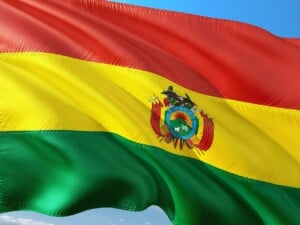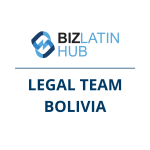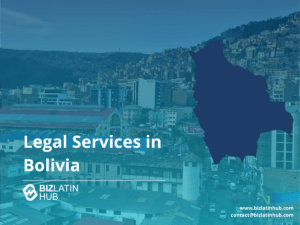Non-profit organizations (NGOs) in Bolivia emerged 30 years ago. However, to this day they still contribute significantly to the country’s welfare.
In a global comparison, Bolivia is an emerging country with a median average income per capita. However, Bolivia does face certain challenges in areas such as government services, climate change, industrial development, and access to drinking water and electricity in more isolated parts.
With the help of NGOs, the Bolivian Government has set a series of key goals that include providing greater drinking water supplies and sanitation improvement by 2025. For this reason, it can be very profitable to gain insight into the procedure of how to form an NGO in Bolivia when doing business in the country.
This article outlines briefly what you need to know about NGOs in Bolivia, the formation process and key maintenance requirements to protect and secure your operations.
What is an NGO in Bolivia?

An NGO is a non-profit organization that works for a goal that society perceives as meaningful. NGOs usually work on a non-profit basis and operate with money collected from donations and fundraising.
Thanks to the Supreme Decree N°22409 that was issued in 1990, NGOs in Bolivia are formally recognized as “non-profit legal entities, nationals or foreigners, religious or secular nature, carrying out assistance and development activities”. All NGOs in Bolivia have the power to define its purposes and objectives while they are lawful.
Furthermore, according to the Supreme Decree N°3746, the registration of legal personality to non-profit organizations, foundations, and non-profit civil entities is granted. This enables those to carry out non-profit activities in Bolivia.
Therefore, any natural or legal person, political parties, and churches can form an NGO, even if it is created for profit or through an authorized representative. Likewise, foreigners can be part of an NGO if they comply with all requirements related to the local migration regulations.
An NGO is able to carry out any type of financial or commercial operation. In addition, they can even be part of civil or mercantile companies and receive profits. The only restriction is that those profits cannot be distributed among the associates, but can be incorporated into the company’s own assets.
NGO single national registration

As part of the Bolivian government’s effort to mitigate bureaucracy, the requirements to form an NGO in Bolivia can be found on the Bolivian Ministry of Development Planning website.
To register an NGO in Bolivia, there must be a legal representative in charge of sending the registration, renewal, upgrade, and dissolution request. This can be done through the government’s virtual office.
All forms must include the information required by the Single National Registration, the National Tax Service (Servicio de Impuesto Nacionales), and the General Service of Personal Identification (Servicio General de Identificación Personal).
The process for the NGO’s Single National Registration is free and takes around 20 calendar days to be completed. All observations will be notified to the legal representative via email in order to be amended within 15 calendar days after the notification. In addition, the Ministry of Development Planning could request the original documents. This could be necessary in order to validate the information presented.
Steps to form an NGO in Bolivia
Bolivian companies interested in forming and NGO in Bolivia should present the following documents:
- Current legal personality document.
- Approved bylaws.
- Power of Attorney of the current legal representative.
- Current Tax Identification Number (N.I.T. in Spanish).
- Form N°01 Institutional identification and Form N°02 Programs and Projects, both duly filled.
Foreign companies must present the following documents:
- Current Framework Cooperation Agreement (A.M.C.B. in Spanish).
- Power of Attorney of the current legal representative.
- Current Tax Identification Number (N.I.T. in Spanish).
- Form N°01 Institutional identification and Form N°02 Programs and Projects, both duly filled.
As mentioned above, the legal representative has the responsibility to submit those documents tough the Ministry of Development Planning web site.
Corresponding forms

There are two types of corresponding forms when registering an NGO at the Bolivian Ministry of Development and Planning.
Form N°01: includes company name, activity description, starting date, country of origin, territorial scope, address (for foreign companies, includes national and foreign address), legal representative information, general-purpose, annual programmed budget indicating its source, among others.
For Bolivian companies: It includes the legal personality, approved bylaws, and members of the Directorate.
For foreign companies: It includes the AMCB scanned, validity date, and description of the Directorate in Bolivia and Head Office.
Form N°02: includes general details of the project including name starting date, sectors of activity, partnerships, objectives and purposes, among others.
Note: Once all the information is duly filled, it will be verified prior to get the Registration Certificate or to notify about observations to be amended. Then, if everything is correct, the Ministry of Development and Planning will send the Registration Certificates digitally signed via email to the legal representative.
Renewal, upgrade and dissolution request
NGOs in Bolivia must renew their Registration Certificate every 3 years, a month before its expiration.
In case of modifications, an upgrade request within 60 days since the modification is necessary. Furthermore, national and foreign companies must update their information in April each year.
Moreover, there are 2 types of dissolution requests:
- Automatic cancellation
This happens when national and foreign NGOs do not present the renewal request when applicable. However, in this case, it can be rectified by explaining the reason for the delay. Then, the legal representative must upload all necessary documents on the Single National Registration web page. - Formal request
The legal representative is responsible to request and explaining the reasons of the dissolution. Then, the legal representative must upload all necessary documents on the Single National Registration web page.
Other requirements to maintain your NGO in Bolivia
Once an NGO in Bolivia starts its activity as a non-profit organization, the only monthly obligation is the VAT payment at the Tax Office. Each year, NGOs must present an Annual Report in which the activities, plans and projects executed during the year must be specified.
NGOs also have to present their cash flow and patrimonial situation, to ensure the Tax Administration can verify these documents and justify the exemption for tax profit.
The documents mentioned above will also avoid NGOs to pay the municipal annual tax. All donations to NGOs in Bolivia from third persons are tax-deductible.
Form an NGO in Bolivia with support from Biz Latin Hub
Bolivia offers plenty of opportunities for non-profit work. Even though the history of NGOs in Bolivia traces back to 1990, those organizations haven’t tapped the field for social, environmental, and political work fully yet. Take advantage of the “market gap” of NGO activities in Bolivia with the help of Biz Latin Hub!
Our team is multilingual and consists of local lawyers and professional accountants. We provide you with tailor-made business solutions and our vast experience in the business world in Latin America. Choose from our wide range of back-up services, such as legal services, PEO, hiring and recruitment, payroll management, accounting and taxation, visa procedures, due diligence, market-entry, and others.
Get in touch with us now for personalized assistance and guidance for your NGO in Bolivia.
Learn more about our expert authors and team.






